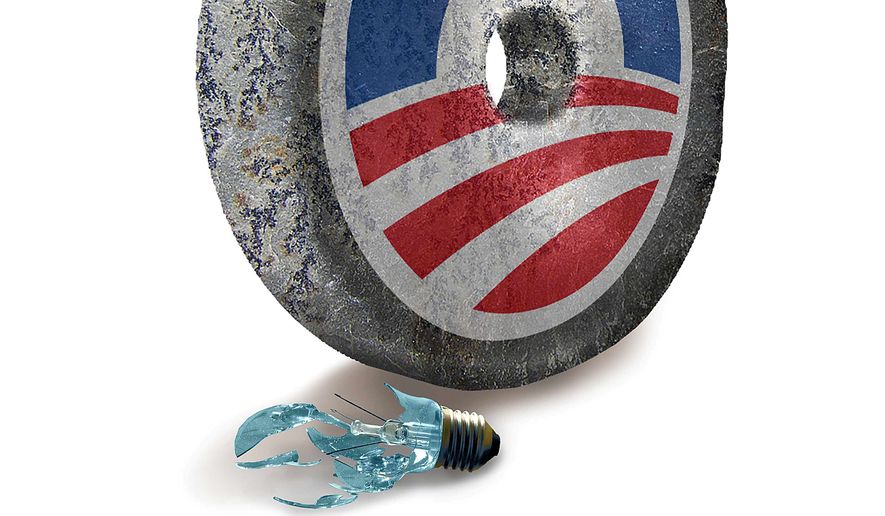Trouncing patent trolls and achieving tort reform.
These twin goals of a House patent-reform bill helped garner support from Republican conservatives, libertarians and Democrats — which is why it sped to a lopsided victory vote of 325-91 in late 2013. Companion bills on patent reform never cleared the Senate.
Patent-reform was reintroduced in 2015, and both H.R. 9, the Innovation Act, and S. 1137, the Protecting American Talent and Entrepreneurship (PATENT) Act, have cleared key committees in their chambers.
But this time, an array of vocal opponents — including independent inventors, investors and universities — have been working hard to explain to members, including conservatives, why neither patent trolls nor runaway lawsuits will be checked by these bills.
Instead, the proposals are too broad, too soon and too heavy-handed, the critics said.
“This is not tort reform, because patents are, in fact, property rights, and when you look at the types of changes to litigation practices that are being proposed, it weakens property rights,” said Adam Mossoff, law professor at George Mason University School of Law.
SPECIAL COVERAGE: Protect Inventors, Preserve Innovation
Certainly, members of Congress, including conservatives and libertarians, heard things they liked when the bills were introduced, said Mr. Mossoff, the co-founder of the Center for the Protection of Intellectual Property at GMU.
What they didn’t hear was that the legislation “radically revises all rules for enforcing and licensing patent rights in the marketplace and in the courts, and thereby devalues those rights by making it much harder to go after infringers and much harder to license your rights.”
Such changes would “weaken” the “very valuable property rights that have been the driver of America’s innovation economy for more than 200 years,” Mr. Mossoff said.
Many House members are only now realizing that “they had voted for something that was really dramatic for the economy, and they had done it so quickly and without being provided with much information,” said Charlie Sauer, founder and president of Entrepreneurs for Growth.
Yes, some people are sending egregious — and fraudulent — demand letters about patent infringement, said Mr. Sauer. But there aren’t that many of those bad actors, and in any case, “we don’t think [the legislation] stops that [practice],” he said. The bills are like “taking a sledgehammer to a mosquito.”
Mr. Sauer’s US Inventor is one of some 25 groups, including conservative stalwarts Eagle Forum, American Conservative Union and American Family Association, that recently wrote to Congress to spell out their “strong opposition” to the House and Senate patent-reform bills.
The patent bills would do “immense harm to American innovation,” they wrote on Jan. 27. The bills would “undermine property rights, devalue intellectual property, disincentivize innovation and invention, diminish the extraordinary economic gains derived from strong IP backed by the Rule of Law, and reward the theft of IP,” they wrote.
Richard A. Epstein, law professor at New York University School of Law and a renown expert on legal issues including property rights, said he believed excellent arguments were being made for why the proposed bills carried harmful consequences in areas such as legal discovery, disclosure information and rules of procedure.
Universities, for instance, wrote “extremely informative” letters to Congress about their objections, and have warned that the bills would “essentially require us to rethink and redo every agreement and every practice that we have,” said Mr. Epstein.
As for the patent trolls, there are indeed people who “bring blunderbuss suits and [play] extraction games against the little guy,” Mr. Epstein said.
“But there are so many things you can do [about them], short of revolutionizing the entire patent law,” he said, listing judicial penalties in frivolous lawsuits, enforcement of state anti-fraud laws, and smarter use of court injunctions and damages while sorting out patent-infringement claims.
Even the timing of the current legislation is puzzling, Mr. Epstein noted: “We haven’t even absorbed all the decisions that were made” in the America Invents Act, a major patent-reform law enacted in 2011.
The recent death of U.S. Supreme Court Associate Justice Antonin Scalia could impact the fate of many bills, including the patent proposals.
There are many stakeholders, including individual inventors, small businesses and start-ups, and those working in research and development, who are raising objections to the current bills, said Mr. Mossoff. These objections, plus the likelihood that the Senate Judiciary Committee will have its hands full regarding a Supreme Court nomination, could keep the patent issue at a standstill.
The inventors aren’t taking any chances, though.
Noting that either bill could be called up at any time, “we’re continually up on the Hill, talking about intellectual property, and inventors, and what it means to be in your basement or in your garage inventing,” said Mr. Sauer.
• Cheryl Wetzstein, formerly national news reporter at The Washington Times, is Special Sections Manager for TWT Media Group.




Please read our comment policy before commenting.